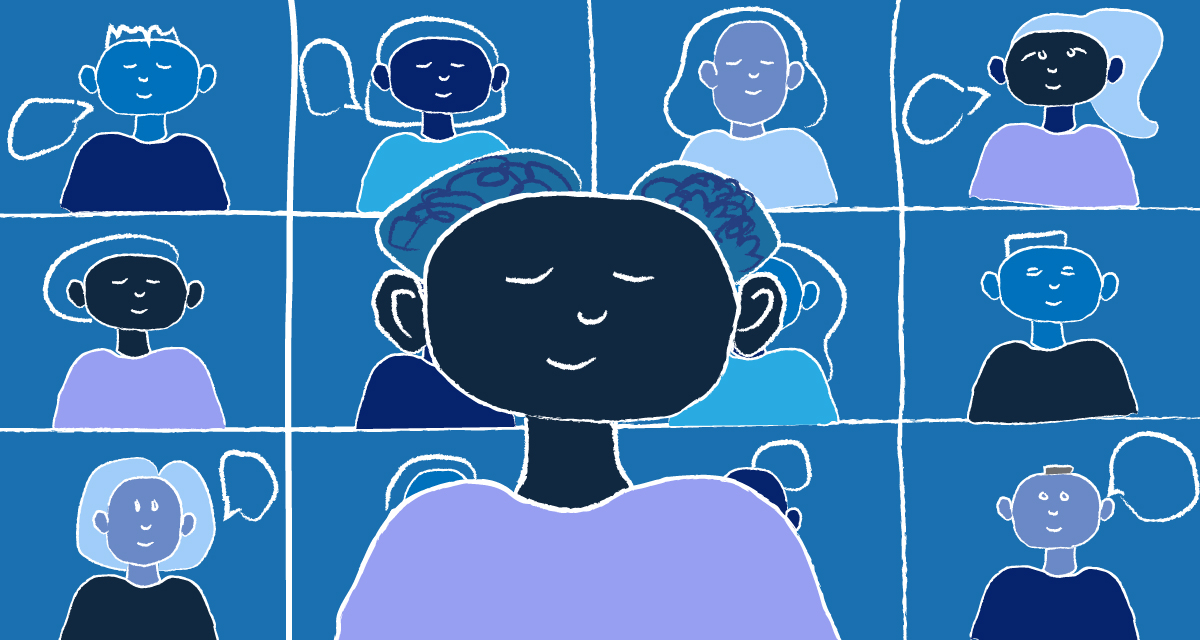My brother was diagnosed with alopecia as a teen. At an age when kids are experimenting with their “look” and deciding how to present themselves to the world, my brother was dealing with a visible health issue. Over several months, he lost patches of hair, wearing hats to cover up, and getting frequent haircuts in an attempt to make the patches less noticeable. As he lost his hair, he lost his confidence. In the Black community especially, hair is regarded as a crown and deeply impacts our identities. When it’s partially taken away, the challenges of navigating our sense of self, along with others’ perceptions of us are magnified.
What is Alopecia?
Alopecia, clinically known as alopecia areata, is an autoimmune disease that causes the loss of hair in patches and is believed to be heightened due to a strong correlation between loss of hair and stress, the intensity of stress, and stressful events. Affecting men and women equally, it’s not discussed as frequently as androgenetic alopecia — commonly known as male pattern baldness.
Sparking Stares
Throughout his journey with alopecia, my brother was subjected to constant questions and comments. Asked from a place of genuine curiosity, questions often landed insensitively. So did the gaping stares that reminded him that he looked different. Beyond his physical condition, he felt psychological pain. And people’s stares exacerbated the agony. According to a study published by the NIH, alopecia is often accompanied by psychological consequences, including anxiety and depression. That’s why we need to keep in mind there is more to a person’s experience than what we can see.
Controlling the Conversation
How can we as friends, classmates and colleagues navigate conversations with people who are affected by health conditions that set them apart? In a society that puts so much emphasis on how people look, how might we show greater sensitivity to individuals battling Bell’s palsy, or vitiligo, or alopecia like my brother?
- Awareness is key. So many “foot-in-mouth” comments are made due to lack of understanding. September is #AlopeciaAwarenessMonth and I encourage everyone to learn what it is and how it makes people with it feel. Take time to listen and understand.
- Provide space for complicated feelings. Don’t tell someone with a condition, “you’re so brave” or “you’re an inspiration.” People battling health conditions that make them look different are not doing so by choice. Your friend who has vitiligo or wears a hearing aid is human and likely does not want special treatment.
- Don’t play doctor. Chances are the person is consulting a primary care physician and specialists already. Giving them advice on what treatments they should try will only add to their stress and pressure to feel “fixed” or “normal,” and sometimes that stress can make their condition worse.
 Our Role in Rebuilding Confidence
Our Role in Rebuilding Confidence
Reclaiming confidence is a journey. I have seen my brother cut, dye, grow, and twist his hair as he navigates his condition. Rather than hide the effects of his alopecia, after years of treatment, his self-confidence has grown. We all desire a strong sense of self, and that is often impacted by the response we get from other people. So as we support our loved ones, that also means taking action to combat stigma. As allies, here is how we can show support:
- Support their choices. For someone with alopecia, that may be getting a new wig. For someone with a hearing impairment, it might be a modern hearing device. However they choose to express themselves as they deal with their condition, support them.
- Ask how you can be most helpful. The same condition manifests differently on different people. Ask a loved one, peer, or colleague how you can be helpful. When you lend a helping hand or offer a soothing word, remember to consider the person first.
- Let the person facing the condition open the door to conversation. Don’t make assumptions. That will intensify their insecurity. Although the way someone looks is often the first thing we notice, there is always so much more. Get to know the person beyond the condition.
The Power of Peer Support
People with alopecia can look beyond friends and family for support. My brother recently told me that support from family and friends is important, but he has also appreciated support from online communities. Scrolling through TikTok and Instagram can provide access to content that provides stress-relieving humor. A study published by the British Journal of Dermatology revealed that online platforms play a big role in building social confidence in people with visible health conditions. It’s fortunate we live at a time when digitization and technology let us connect beyond geographical barriers to strengthen our support networks.
We should all work to support those in our close circles who are dealing with physically-altering conditions like alopecia. Empathy is critical. It’s how to play a role in rebuilding confidence, and it’s how we build a world that is truly inclusive.


